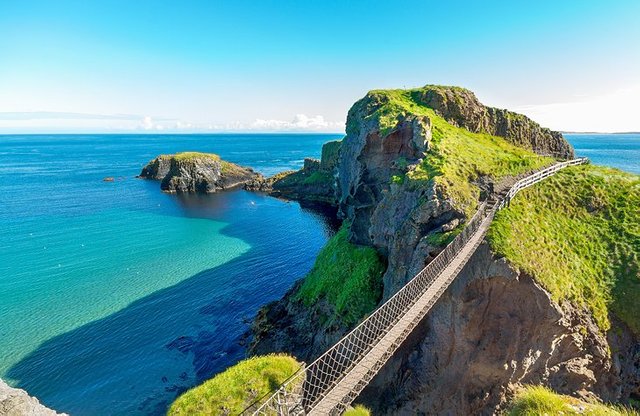Northern Ireland

Northern Ireland is a part of the United Kingdom located on the island of Ireland. It shares a border to the south and west with the Republic of Ireland. Its capital and largest city is Belfast. Northern Ireland has a complex history, characterized by cultural, political, and religious divisions, most notably between the predominantly Protestant unionist community, who generally identify as British and wish to remain part of the United Kingdom, and the mainly Catholic nationalist community, who identify as Irish and seek unification with the Republic of Ireland.
Historical Background
The roots of Northern Ireland's divide stretch back centuries. In the 17th century, the English and Scottish Crown initiated a colonization process known as the Plantation of Ulster, which saw the settlement of mainly Protestant English and Scottish people in the region. This led to a demographic and cultural shift, creating tensions with the native Catholic population. By the 20th century, these divisions had evolved into a complex political struggle.
The partition of Ireland in 1921 led to the creation of Northern Ireland as a separate entity within the United Kingdom. This partition was intended to address the differing political aspirations of the island's inhabitants. However, it laid the groundwork for further conflict, as Northern Ireland's Catholic minority often faced systemic discrimination in areas such as housing, employment, and political representation.
The Troubles
One of the most defining periods in Northern Ireland's modern history is "The Troubles," a violent conflict that lasted from the late 1960s to 1998. The Troubles involved paramilitary organizations, such as the Irish Republican Army (IRA) on the nationalist side and the Ulster Volunteer Force (UVF) on the unionist side, along with the British Army and police. It resulted in over 3,500 deaths and thousands of injuries.
The conflict centered around issues of national identity, civil rights, and the constitutional status of Northern Ireland. The violence touched nearly every aspect of life in Northern Ireland, leading to deep social divisions.
The Peace Process
The Good Friday Agreement (GFA), also known as the Belfast Agreement, was signed in 1998 and marked a major turning point. The GFA established a devolved government for Northern Ireland, based on power-sharing between unionists and nationalists. It also laid out provisions for disarmament, the release of political prisoners, and the normalization of security measures.
A key element of the agreement was that Northern Ireland's constitutional status could only be changed with the consent of its people. This helped ease tensions by acknowledging the identities of both communities. The peace process has been largely successful in reducing violence and fostering political cooperation, although challenges remain.
Modern Day
Northern Ireland today is a region that continues to navigate its complex history and cultural identity. It has a distinct cultural heritage, reflected in its music, literature, and sports. Economically, Northern Ireland has made significant strides, with a growing technology sector, tourism, and cultural industries.
However, the legacy of the past persists in many areas. Political tensions can still surface, particularly around issues such as parades, flags, and language rights. Additionally, Brexit has introduced new uncertainties, particularly concerning the border with the Republic of Ireland. The Northern Ireland Protocol, part of the Brexit deal, was designed to avoid a hard border on the island of Ireland but has created political and economic tensions, particularly among unionists.
Society and Culture
Northern Ireland's cultural life is vibrant and diverse. It has produced many notable figures in literature, music, and the arts, such as C.S. Lewis, Seamus Heaney, and Van Morrison. The region is known for its natural beauty, including the Giant's Causeway, the Mourne Mountains, and its rugged coastline.
The cities of Belfast and Derry/Londonderry are cultural hubs, with thriving arts scenes, historic landmarks, and numerous festivals. Despite historical divides, many communities actively work toward reconciliation and building a shared future.
In summary, Northern Ireland is a region marked by a complex interplay of history, politics, and culture. It has made significant progress toward peace and stability, but ongoing efforts are required to address the underlying issues that still affect its society.